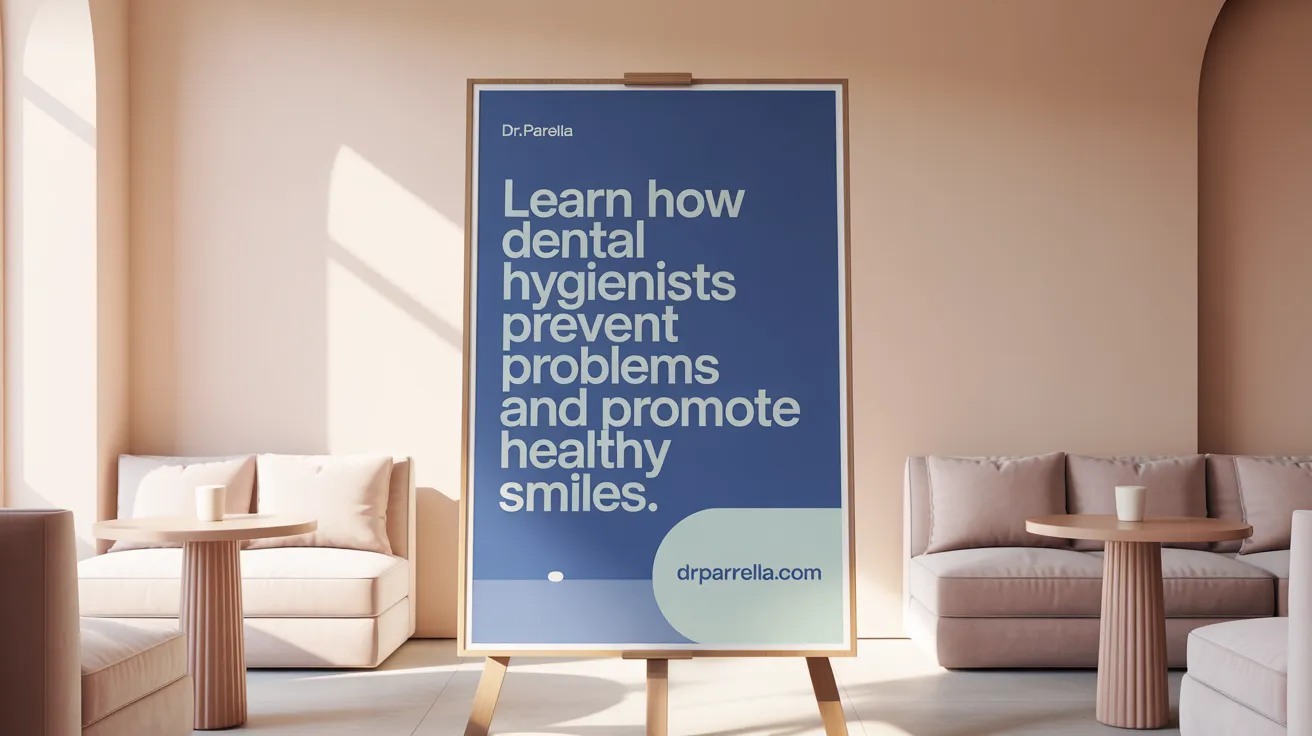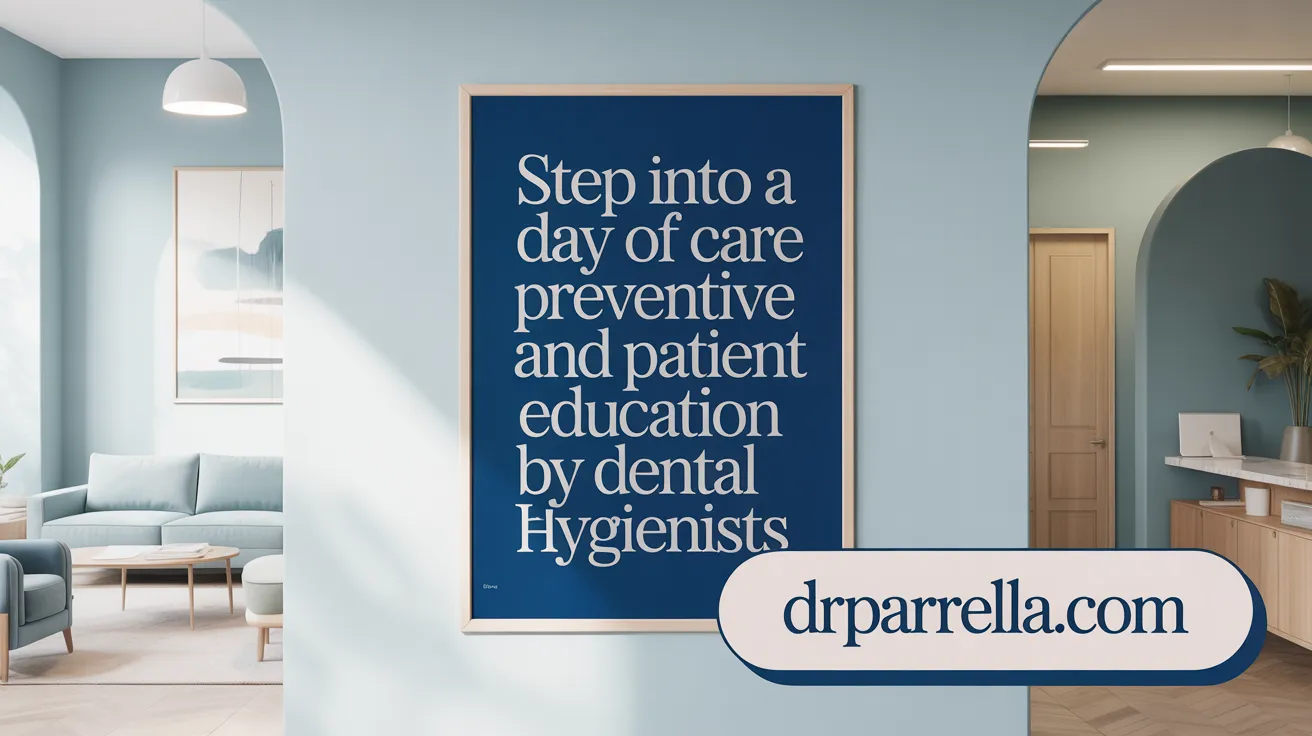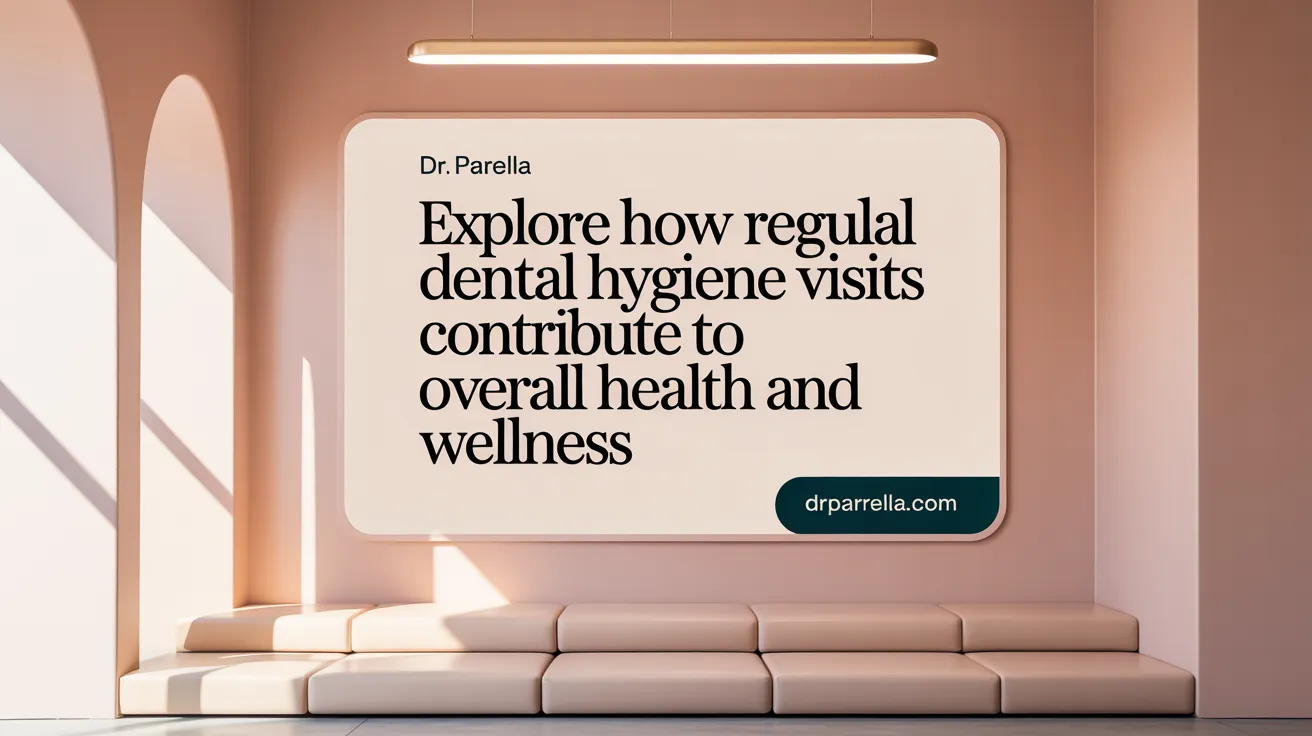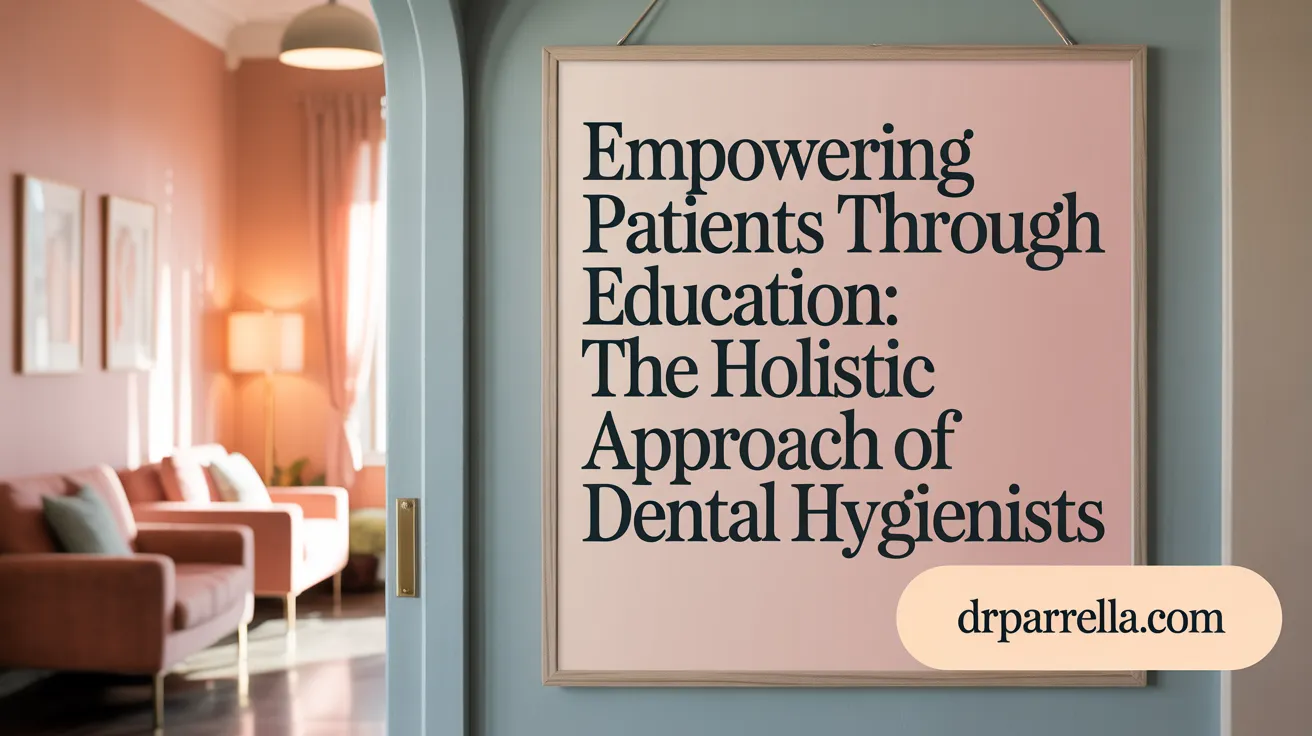Understanding the Vital Role of Dental Hygienists
Dental hygienists are often the unsung heroes within the dental care team, playing a crucial role in maintaining oral health and preventing disease. While dentists are well-known for performing complex dental procedures, dental hygienists focus on prevention, early detection, and patient education to ensure healthy smiles. This article explores the comprehensive responsibilities, qualifications, and the indispensable impact dental hygienists have on both oral and overall health.
Who Are Dental Hygienists and What Do They Do?

Role and responsibilities of dental hygienists
Dental hygienists are licensed oral health professionals who play a vital role of a dental hygienist in maintaining and improving oral health through preventive care. Their responsibilities include performing professional dental cleanings that remove plaque, tartar, and stains from teeth—tasks beyond the reach of regular brushing. They conduct oral health screenings to detect early signs of cavities, gum disease, and oral cancer. Preventive treatments such as fluoride treatments and sealants are also part of their care, helping to protect teeth from decay.
Difference between dental hygienists and dentists
Dentists and dental hygienists work together but have distinct roles. Dentists diagnose and treat complex dental conditions, including restorative work and surgeries. In contrast, dental hygienists focus largely on preventive dental care and oral maintenance. Their work enables dentists to concentrate on more complex diagnosis and treatments by managing routine professional dental cleanings, oral health screenings, and patient education.
Typical procedures performed by dental hygienists
Common procedures by dental hygienists include scaling and polishing, removal of plaque and tartar, deep cleaning through tooth scaling and root planing, applying fluoride treatments to strengthen enamel, and placing dental sealants that shield deep grooves in teeth. Hygienists may also take dental X-rays and perform initial oral disease screenings to detect oral health issues early.
Patient education and preventive care
Patient education is a major part of the dental hygienist’s role. They teach brushing and flossing guidance, tailor advice on oral hygiene for different needs including care around implants and bridges, and discuss lifestyle factors such as dietary impact on oral health and tobacco use. This personalized guidance helps prevent dental diseases and promotes ongoing healthy habits.
Collaboration with dentists
Dental hygienists work closely with dentists within a dental team, sharing findings from assessments and screenings to support comprehensive patient care. This collaboration ensures treatment plans are well-informed, preventive measures are prioritized, and patients receive coordinated, effective oral healthcare.
This extensive preventive approach by dental hygienists not only supports healthier teeth and gums but also contributes to overall well-being by reducing risks associated with systemic illnesses like heart disease and diabetes. Regular visits to a dental hygienist are recommended for early detection of oral issues, enhanced maintenance, and personalized oral health promotion.
The Path to Becoming a Dental Hygienist: Education and Licensing
Educational Requirements
To become a dental hygienist, one must complete an accredited dental hygiene program, typically an associate's or bachelor's degree. This education usually spans 2 to 4 years and covers subjects such as anatomy, oral pathology, periodontology, radiology, and nutrition. Alongside classroom learning, students engage in supervised clinical practice to gain hands-on experience treating patients.
Licensing and Certification Process
After graduation, candidates are required to pass the National Board Dental Hygiene Examination (NBDHE), a state clinical exam, and often a jurisprudence exam to obtain a state license. These exams ensure hygienists are qualified to provide safe and effective care. Maintaining licensure requires ongoing continuing education to stay updated on evolving dental techniques and knowledge.
Clinical Training and Continuing Education
Practical clinical training is integral, allowing students to apply theoretical knowledge in real-world settings under supervision. Post-licensure, dental hygienists participate in continuing education courses focusing on current scientific advancements and clinical skills to enhance patient care. For more details, see the Day-to-Day Responsibilities of Dental Hygienists and Dental Hygienist Job Description.
Career Advancement Opportunities
Beyond clinical practice, dental hygienists can pursue various roles such as educators in academic and corporate environments, researchers conducting dental health studies, public health practitioners serving underserved communities, administrators managing programs, or entrepreneurs developing products and services. Advanced degrees open doors to leadership roles and specialized fields within oral health care.
A Day in the Life: Clinical and Educational Duties

What are the daily tasks of a dental hygienist?
Dental hygienists typically manage about 10 patient appointments daily. Their core duties begin with reviewing each patient's dental and health histories to tailor care effectively. They perform detailed oral health assessments, looking for any signs of disease or abnormalities.
Types of dental cleanings and screenings
Professional cleanings are essential preventive care involving scaling (removing plaque and tartar), polishing teeth, and flossing. Hygienists also apply fluoride treatments and dental sealants to protect teeth from decay. Routine screenings include checking for cavities, gum inflammation, periodontal diseases, and early markers of oral cancer.
Patient communication and education
Strong communication skills are vital as hygienists educate patients on effective brushing, flossing, nutrition, and lifestyle choices that impact oral health. They personalize advice for different needs, helping patients maintain good hygiene habits between visits.
Use of technology including X-rays and anesthesia
Dental hygienists take and interpret dental X-rays to detect hidden issues like bone loss or cavities. In some states, they administer local anesthesia to facilitate treatments comfortably. Technology aids precise diagnosis and effective patient care.
How do dental hygienists contribute to early detection of oral diseases?
Through thorough examinations and screenings, hygienists identify early signs of oral diseases such as cavities, gum disease, and oral cancer. Early detection enables prompt interventions, which improves treatment outcomes and helps prevent costly, invasive procedures. Their role supports overall oral health and integrates closely with dentist care planning.
The Preventive Power and Health Benefits of Dental Hygiene

Why are regular visits to dental hygienists important?
Regular visits to dental hygienists are crucial for maintaining oral health. Dental hygienists perform professional dental cleanings that remove plaque and tartar buildup beyond what daily brushing and flossing can achieve. This preventive dental care not only helps avoid cavities and gum disease but also eliminates surface stains to brighten smiles and reduces bad breath.
Additionally, these visits enable early detection of oral health problems such as early signs of gum disease or oral cancer, which can lead to more straightforward and less costly treatments.
How does oral health impact overall health?
Oral health is closely linked to overall systemic health. Poor oral hygiene can contribute to the development or worsening of serious conditions including heart disease, diabetes, and pregnancy complications. Dental hygienists play a vital role by preventing periodontal disease which lowers systemic inflammation and associated health risks.
They also educate patients on lifestyle choices like diet and tobacco use that affect both oral and general health. This holistic approach supports better health outcomes beyond the mouth.
The economic benefits of preventive dental care
Preventive care from dental hygienists can lead to cost savings by reducing the need for expensive restorative and surgical treatments later. Early interventions and routine maintenance can minimize progression of dental diseases, preserving natural teeth and decreasing overall healthcare expenses.
Patient motivation and reduction of dental anxiety
Dental hygienists often foster strong patient relationships that encourage adherence to oral care routines. A comforting, educational environment can reduce dental anxiety, making patients more likely to seek timely care and maintain healthy habits.
Regular hygiene visits provide consistent support and empower patients to take charge of their oral health, enhancing confidence and wellbeing.
By prioritizing regular dental hygiene visits, individuals benefit from improved oral health, detection of potential problems, reduced risk of systemic disease, economic savings, and a more positive dental experience.
Dental Hygienists: Champions of Patient Education and Holistic Care

How do dental hygienists contribute to patient education and motivation?
Dental hygienists play a vital role in educating patients on proper oral hygiene practices, including teaching effective brushing and flossing techniques tailored to individual needs, such as those with orthodontic appliances, implants, or sensitive teeth. Beyond mechanical cleaning, they provide dietary advice that supports oral health, emphasizing the impact of nutrition on dental well-being.
By building trust and maintaining open communication, dental hygienists motivate patients to adhere to recommended home care routines. Regular visits foster strong rapport, which can alleviate dental anxiety and encourage patients to actively participate in their oral health maintenance.
What is the evolving role of dental hygienists in healthcare?
Dental hygienists' roles are expanding beyond traditional cleaning to include health coaching and systemic disease risk assessment. They collaborate closely with medical professionals to detect early signs of systemic conditions such as diabetes and cardiovascular disease that manifest orally. This multidisciplinary engagement enhances comprehensive patient care.
They are increasingly involved in advocacy for broader professional practice rights and contribute to research, education, and public health initiatives to advance oral health equity. Their expanding scope reflects a holistic approach that integrates oral care within overall health management.
Tailoring advice to individual needs and populations
Dental hygienists customize their education and preventive strategies for diverse populations, such as children, seniors, and underserved groups. This personalized approach ensures that oral hygiene instructions and lifestyle recommendations effectively address unique patient challenges.
Collaboration in multidisciplinary health teams
Working alongside dentists, physicians, and other healthcare providers, dental hygienists facilitate communication about oral-systemic health links. Their role in interdisciplinary teams helps in early detection and management of both oral and general health conditions.
Enhancing patient satisfaction and oral health outcomes
By providing tailored education and preventive care, dental hygienists improve long-term oral health outcomes. Their preventive interventions reduce disease risk, promote fresher breath, and enhance smile confidence, contributing to patients’ overall well-being and satisfaction. See benefits of regular hygienist visits and improving smile confidence.
Emerging roles and future directions in dental hygiene
The profession is evolving to include roles in health coaching, research, education, and public health advocacy. Dental hygienists strive to expand their practice rights, advance interprofessional collaboration, and address social determinants affecting health. This progress positions them as integral contributors to holistic healthcare and public health improvement.
Recognizing The Unsung Heroes of Oral Health
Dental hygienists play a fundamental but often underappreciated role in maintaining and improving oral health. Their expertise in preventive care, patient education, early disease detection, and collaboration with dentists helps millions achieve healthier smiles and better overall wellness. As the profession evolves, hygienists continue to expand their impact beyond the dental chair into public health, research, and interprofessional care. Prioritizing regular visits to a dental hygienist not only preserves dental health but also supports systemic well-being and quality of life. It's clear that dental hygienists are indeed the unsung heroes deserving recognition and gratitude for their vital contributions to our smiles and health.
